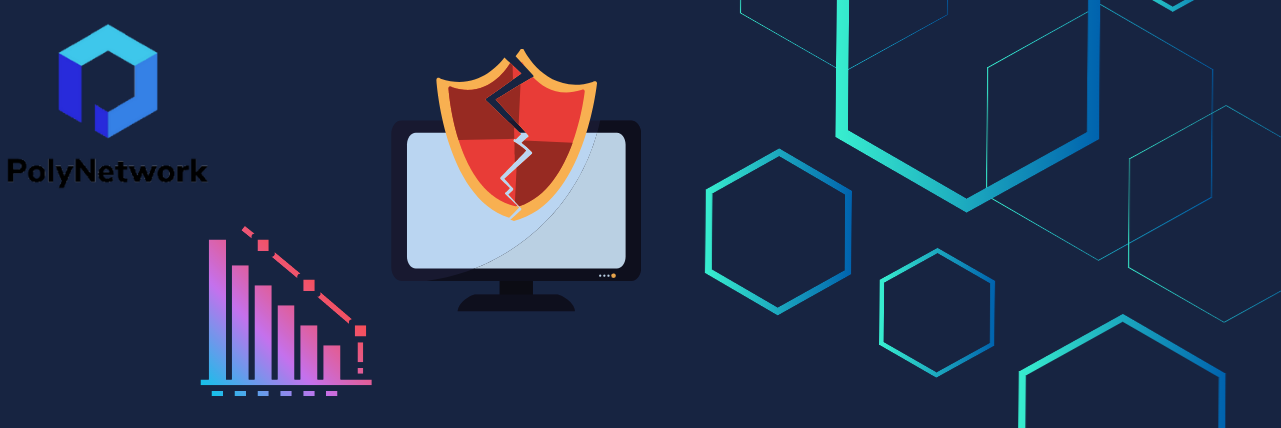Table of Contents
- THORChain Compromised Twice In Two Weeks
- Poly Network Gets Drained of $600 Million in One of the Largest Crypto Heist
- DeFi Auditing and the Future of Security in the DeFi Ecosystem
- How Proper Auditing Procedures Can help Solve Vulnerabilities in DeFi Networks
- An All-in-one DeFi Security Solution
- Why Blockchain Security Solution is the Future of DeFi
- Conclusion
Image source: DepositPhotos
The year 2021 has been a mixed one for the crypto and blockchain community. While the community has made some positive strides and nicked some record-breaking highs and innovations, they’ve had some pretty nasty and expensive lows.
Well-known cross decentralized platforms, THORChain and Poly Network, were victims of some recent high-profile hacks. Poly Network’s hack runs into more than half a billion dollars, with the hacker involved leaving behind anti-hack measures for the troubled platform.
The big question on everyone’s lips is centered on the impact of such hacks on the crypto community. First, let’s take a look at these recent multi-million dollar hacks and discuss what is needed to enhance the future of security in the crypto space.
THORChain Compromised Twice In Two Weeks
Well-known DeFi protocol, Thorchain (RUNE), was a victim of two hacks within a space of two weeks. One of the attacks was on THORChain’s Ethereum router, an element of the protocol’s smart contract architecture. The hacks were so fatal that the platform lost 4,000 ETH, which was worth $8.2 million at that time of the hack.
As expected, the incident raised concerns in the market with lots of speculations and questions. These questions are valid because the hackers orchestrated the hack to point out the loopholes in the architecture, with many calling it a white hack move.
Another major reason that suggests the attacker is a white hat hacker is that they could have easily carted away with more funds but didn’t. Consequently, operations took a hit, with the Ethereum router attack causing THORChain to halt ETH transactions until auditors reviewed the situation.
Poly Network Gets Drained of $600 Million in One of the Largest Crypto Heist
Poly Network, another DeFi platform that allows the interoperability of blockchain networks, was also a victim of a recent hack that saw nearly $600 million worth of assets pilfered. Although it turned out to be a white hack as the perpetrators returned all the funds and pointed out some of the vulnerabilities in the platform, it left a lot to be imagined in the blockchain ecosystem, having seen related past incidents.
The hackers had said they only did it for fun. So, does it mean that they, too, had the crypto community in mind while doing this? Does it also mean folks now catch fun using investors’ funds?
What if they weren’t having fun and decided to use a few million dollars to buy a yacht, private jet, and a cozy house at the beachside of Miami?
That would have been too painful an experience for the network and its numerous investors. The hackers’ statement showed they pointed out the loopholes and how to solve the problem in the DeFi ecosystem.

The fact that these hackers didn’t demand any ransom rejected the $500,000 bounty offered by Poly Network and returned all the stolen assets to where they took them from proved this point. Whatever the reason for the hack, it is doing more harm than good to the confidence in the ecosystem.
Ever since the hack, Poly Network began a full recovery and refunding process to the affected investors. They are now taking proper pen-testing and auditing measures to improve their network’s security system. So, what have all these got to do with the future of blockchain and the DeFi ecosystem? Let’s find out.
DeFi Auditing and the Future of Security in the DeFi Ecosystem
Security has been a significant standpoint of the centralized financial system (CeFi). In return for securities offered to investors, banks charge outrageous fees for their services. Decentralized finance (DeFi), a democratic system, was introduced to tackle the limitations in the centralized finance market, but the area of security has been its major weakness.
Arriving at a more robust security option for DeFi platforms has become a debate in the blockchain and crypto space, with organizations and developers brainstorming on different convenient options.
Some well-funded DeFi solutions spend tremendous sums of money on maintaining security in their platforms. Those without that much capital from smart contracts must undergo proper auditing of protocols to ensure there are no vulnerabilities in both the whitepaper and source codes of their platforms that could warrant such hacks.
How Proper Auditing Procedures Can help Solve Vulnerabilities in DeFi Networks
When a building is well-fenced and protected and its security protocols checked, it becomes difficult for a third party to access it without the involvement of the house owner. And this applies to DeFi platforms that employ proper auditing procedures before launching dApps or integrating protocols into their systems.
Auditing is the process of conducting all-around security, financial, and smart contract checks on DeFi or blockchain platforms to ensure they are immune to vulnerabilities. DeFi audits can take time and resources but are necessary if these platforms wish to withstand security limitations.
Vulnerabilities may not affect the blockchain but will affect the platform or network deployed on the blockchain. As blockchains are resistant to modification, it becomes difficult to alter their protocols or recorded transactions. However, platforms deployed on the blockchain need some frameworks to function, which is where vulnerabilities may set in.
As the DeFi ecosystem continues to grow, funds are continually injected into the system by investors. A single glitch could lead to a massive loss of funds and assets. Therefore, auditing techniques require ample knowledge in the software and programming space and the blockchain ecosystem.
For better security, some firms have taken up the responsibility of auditing DeFi networks, thereby standardizing auditing by applying the necessary procedures and techniques required to cover all the aspects of auditing, including regulatory and financial compliance audits.
An All-in-one DeFi Security Solution
With the growing demand for enhanced security in the crypto community, QANplatform, a hybrid blockchain solution, uses quantum intelligence to provide high-resistant protection to DeFi platforms and DEXes that use its products and features.
Using quantum computer techniques, blackhat hackers will find it hard to penetrate DeFi networks that use QANplatform’s blockchain; this limits the need for auditors and vulnerability testers.

Furthermore, QANplatform’s quantum-resistant security feature secures user data. It is more resource-friendly and open source, which means that developers can access QANplatform’s private blockchain code to create a flexible and intuitive blockchain solution that is hack-proof and secure.
Why Blockchain Security Solution is the Future of DeFi
Seeing how complicated auditing and vulnerability testing is for DeFi networks and the fact that some of these platforms and dApps rely on CeDeFi protocols that offer funding to keep them running, the blockchain security solutions should offer a more compact and cost-effective plan.
By coming up with a secure solution such as QANplatform, decentralized applications and exchanges could have a more convenient security option for their protocols instead of looking around for pen-testers and funds to run audits on their smart contracts.
To remove doubts in the hearts of crypto enthusiasts over the future of cryptocurrency and decentralized finance, more of these security solutions are needed to combat security problems to the minimum.
Conclusion
High-profile hacks are not new to the blockchain ecosystem. Without proper security measures by DeFi platforms, vulnerabilities will continue to set in. Networks may experience losses like Poly Network and THORChain, including the $30 million-plus Ethereum hack in July 2017.
Proper security checks such as penetration testing and smart contract audits could decrease risk factors, leading to hacks such as glitches and undefined smart contract protocols.
However, a more compact protocol with top security such as QANplatform will help developers with all-in-one security and UX instead of employing firms to provide audits for their DeFi applications and software. With this, safety in the crypto market will get to its full potential.
Disclaimer: This article is provided for informational purposes only. It is not offered or intended to be used as legal, tax, investment, financial, or other advice.
Investment Disclaimer














